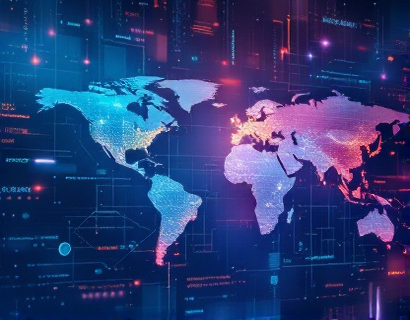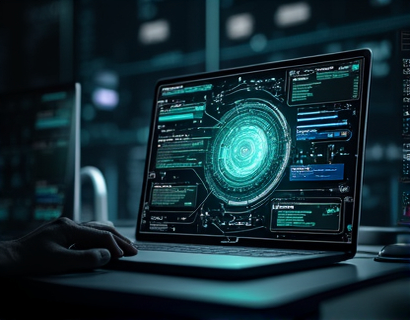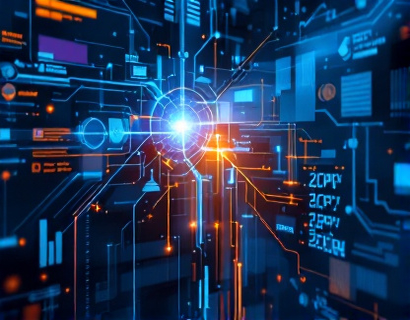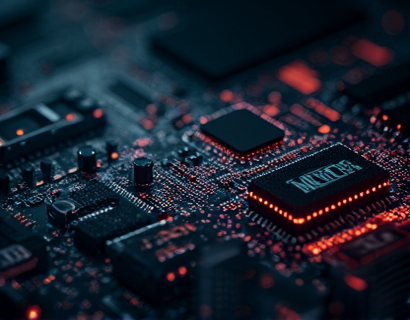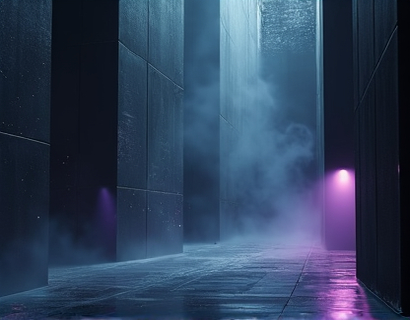Revolutionizing Memorial Creation: The Synergy of AI and Blockchain for Lasting Tributes
The intersection of technology and mourning has given rise to innovative solutions for creating online memorials that are both secure and deeply personalized. This article delves into the future of memorial creation, exploring how the combination of Artificial Intelligence (AI) and blockchain technology can transform the way we honor and remember our loved ones. By leveraging these advanced technologies, a cutting-edge platform offers a unique and meaningful experience for those seeking to create lasting tributes.
Understanding the Need for Advanced Memorial Solutions
The process of saying goodbye to a loved one is inherently emotional and complex. Traditional memorials, whether physical or digital, often fall short in providing a secure and personalized space for remembrance. The bereaved seek platforms that not only preserve memories but also ensure the integrity and privacy of these tributes. The integration of AI and blockchain addresses these needs by offering a robust, secure, and customizable environment for creating online memorials.
AI: Enhancing Personalization and Engagement
Artificial Intelligence plays a pivotal role in crafting personalized memorials. AI algorithms can analyze and curate content based on the life and preferences of the deceased, ensuring that the memorial reflects their unique personality and journey. This technology can sift through vast amounts of data, including social media posts, photos, and personal documents, to create a comprehensive and authentic tribute. AI can also facilitate interactive elements, such as virtual guestbooks where visitors can leave messages, share memories, and pay their respects in a dynamic and engaging manner.
Moreover, AI can assist in managing the memorial over time. It can suggest updates, remind users of important dates, and even generate content based on seasonal or annual events, such as birthdays or anniversaries. This ongoing personalization ensures that the memorial remains a living, breathing tribute that evolves with the memories and stories of those it honors.
Blockchain: Ensuring Security and Ownership
Blockchain technology provides the foundation for a secure and tamper-proof memorial platform. By using a decentralized ledger, the platform ensures that all data is encrypted and distributed across a network of computers, making it virtually impossible to alter or hack. This level of security is crucial for sensitive information and personal memories, providing the bereaved with peace of mind knowing their loved one's tribute is safe from unauthorized access or manipulation.
Blockchain also addresses the issue of ownership and control. Users have full sovereignty over their memorials, with the ability to manage who can access and contribute to the tribute. Smart contracts can be employed to automate permissions and access controls, ensuring that only authorized individuals can make changes or view certain content. This decentralized approach empowers the bereaved, giving them the power to maintain and update the memorial as they see fit.
Combining AI and Blockchain for a Seamless Experience
The true power of this platform lies in the synergy between AI and blockchain. AI enhances the personalization and engagement of the memorial, while blockchain ensures the security and ownership of the content. Together, these technologies create a seamless and trustworthy environment for creating and maintaining online tributes.
For instance, when a user creates a memorial, AI can assist in organizing and presenting the content in a meaningful way. The platform can suggest layouts, incorporate multimedia elements, and even generate personalized messages based on the data available. Once the memorial is live, blockchain ensures that all interactions and updates are securely recorded and verifiable, providing a transparent and immutable history of the tribute.
Benefits for Bereaved Families and Individuals
The combination of AI and blockchain offers numerous benefits for those creating online memorials. First and foremost, it provides a secure space where memories can be preserved without fear of data breaches or unauthorized access. This security is particularly important for sensitive information and personal stories that the bereaved wish to share.
Personalization is another significant advantage. AI-driven content curation ensures that the memorial is a true reflection of the deceased's life, interests, and relationships. This level of customization makes the tribute more meaningful and engaging for visitors, fostering a deeper connection to the memory being honored.
Additionally, the platform's user-friendly interface, powered by AI, makes it accessible to users of all technical backgrounds. The platform can guide users through the memorial creation process, offering suggestions and tools to enhance their tribute without requiring extensive knowledge of technology.
Case Studies and User Experiences
Several users have already experienced the transformative power of this AI and blockchain-based memorial platform. One family created a digital garden where they could plant virtual flowers and leave messages on the anniversary of their loved one's passing. The AI curated a timeline of the deceased's life, complete with photos and stories, providing a comprehensive and interactive tribute.
Another individual used the platform to create a virtual library of their parent's favorite books, complete with notes and reflections. The blockchain ensured that all additions and interactions were securely recorded, allowing future generations to access and continue the tribute.
These examples highlight the platform's ability to create deeply personal and secure memorials that honor the deceased while providing comfort and connection to the living.
Future Prospects and Innovations
The integration of AI and blockchain in memorial creation is just the beginning. Future developments may include augmented reality (AR) features, allowing users to visualize and interact with the memorial in a more immersive way. Virtual reality (VR) could also be incorporated, enabling users to create virtual spaces that replicate meaningful locations from the deceased's life.
Furthermore, the platform could explore the use of decentralized finance (DeFi) to offer memorial funds or donations, allowing friends and family to contribute in meaningful ways. This could include funding for charitable causes that the deceased supported or contributions to a legacy fund for future generations.
As technology continues to evolve, the potential for innovation in memorial creation is vast. The combination of AI and blockchain will likely lead to even more sophisticated and personalized tools, ensuring that online tributes remain a vital and meaningful part of the grieving process.
Conclusion
The fusion of AI and blockchain technology is revolutionizing the way we create and maintain online memorials. By providing a secure, personalized, and engaging platform, this innovative approach offers a new dimension to the act of remembering and honoring our loved ones. As these technologies continue to advance, the future of memorial creation holds endless possibilities, ensuring that the legacies of those we cherish live on in meaningful and lasting ways.










